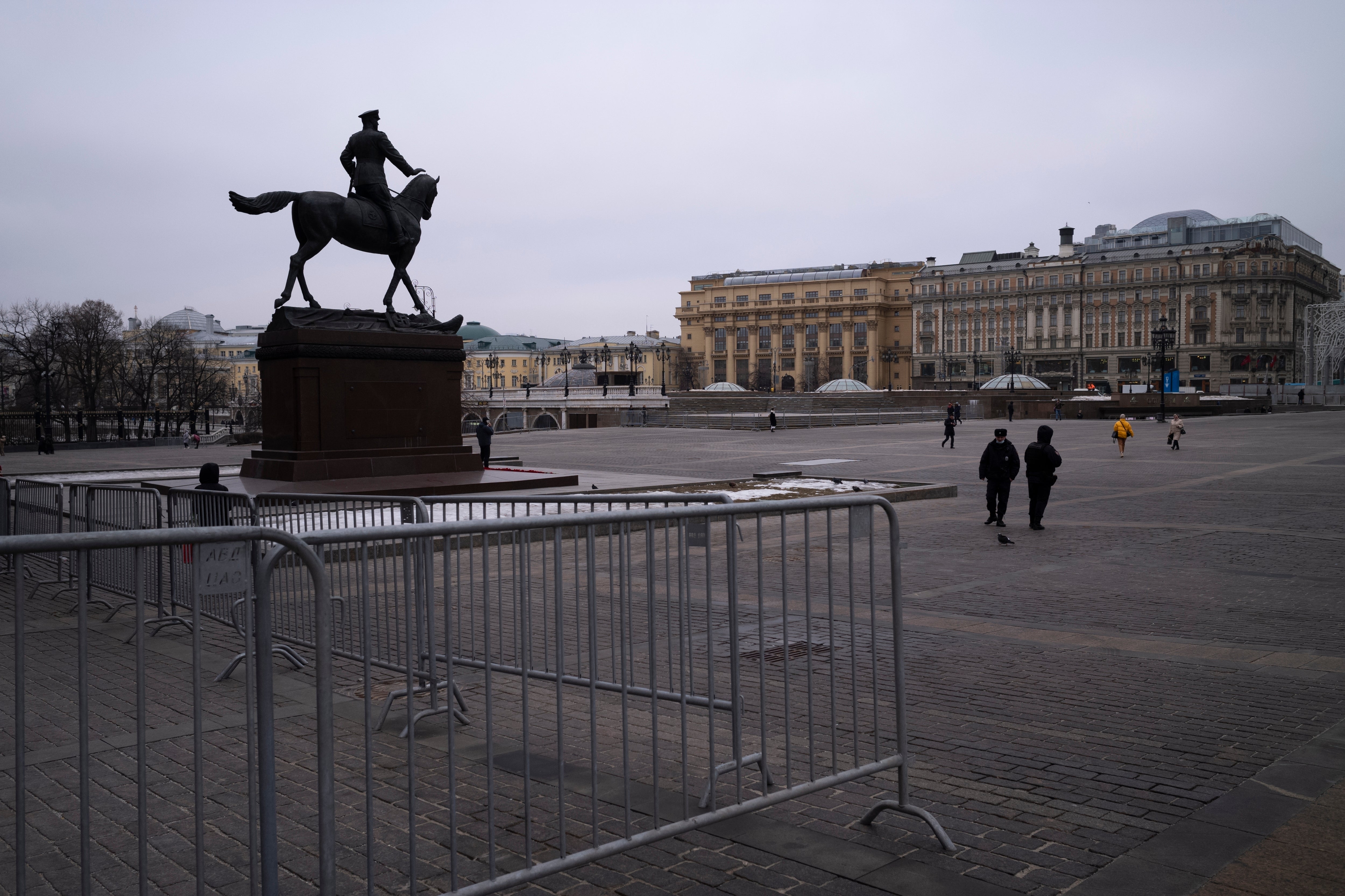BBC ‘temporarily suspends’ work of news journalists and support staff in Russia
It comes after the Russian parliament approved strict new media legislation on Friday.

The BBC is “temporarily suspending” the work of all its news journalists and support staff in Russia after authorities passed legislation cracking down on foreign outlets.
Director-general Tim Davie said the new law appeared to “criminalise the process of independent journalism” in the country.
The Russian parliament approved a law on Friday that would make it a criminal offence to spread “fake” or “false” news about the Kremlin’s war in Ukraine.
It comes after the Kremlin accused the BBC of playing a “determined role in undermining the Russian stability and security”.
A statement from Mr Davie said: “This legislation appears to criminalise the process of independent journalism. It leaves us no other option than to temporarily suspend the work of all BBC News journalists and their support staff within the Russian Federation while we assess the full implications of this unwelcome development.
“Our BBC News service in Russian will continue to operate from outside Russia.
“The safety of our staff is paramount and we are not prepared to expose them to the risk of criminal prosecution simply for doing their jobs. I’d like to pay tribute to all of them, for their bravery, determination and professionalism.
“We remain committed to making accurate, independent information available to audiences around the world, including the millions of Russians who use our news services. Our journalists in Ukraine and around the world will continue to report on the invasion of Ukraine.”
Earlier on Friday, the Russian Duma approved a law making it a criminal offence punishable by up to 15 years in prison for the publication of “fake news” concerning its armed forces.
The law would also make it an offence to call for sanctions against Russia.
Jonathan Munro, the interim director of BBC News, confirmed the corporation “is not pulling out journalists from Moscow”.
He tweeted: “We cannot use their reporting for the time being but they remain valued members of our teams and we hope to get them back on our output as soon as possible.”
Culture Secretary Nadine Dorries reshared Munro’s Tweet and wrote: “Putin doesn’t want the Russian people to know the truth so has outlawed independent journalism.
“It’s testament to their astonishing perseverance that @BBCNews journalists will remain in Moscow while operations are suspended. I know this is tough and my thoughts are with you all.”
Russian foreign ministry spokeswoman Maria Zakharova had previously accused the BBC of playing “a determined role in undermining the Russian stability and security”.
The National Union of Journalists general secretary, Michelle Stanistreet, has also condemned the new Russian legislation, describing it as a “cynical and deliberate attempt to criminalise journalism”.
She said: “At a time when the Russian population are hungry for reliable news and information, Putin is going all out to block news outlets and silence journalists.
“It is a cynical and deliberate attempt to criminalise journalism and instil fear in reporters and their reading public.
“Ultimately it is a futile exercise, and the fearless reporting taking place will win out. The NUJ pays tribute to all those courageous journalists and media workers who continue to carry out their work in the most challenging and febrile of circumstances.
“Journalists across the NUJ and around the world stand in solidarity with their colleagues performing such a vital service in Ukraine and in Russia.”
In the UK, broadcasting watchdog Ofcom has opened 27 investigations into the “due impartiality” of programmes broadcast on the Kremlin-backed RT news channel, formerly known as Russia Today.
Ms Dorries has said RT should lose its licence and “never again” be able to broadcast “poisonous propaganda”.
But Foreign Secretary Liz Truss warned earlier this week that the BBC risked being banned in Russia if RT was shut down in the UK.
Reports that BBC News services were being blocked in Russia prompted the broadcaster to issue a statement on Friday morning, saying it would “continue our efforts to make BBC News available in Russia, and across the rest of the world”.
It also shared a link to an article reminding viewers that its Ukrainian and Russian language services are available on the dark web.
The BBC has made its international news website available through the Tor network, a privacy-focused software used to access the dark web, in a bid to thwart censorship attempts.